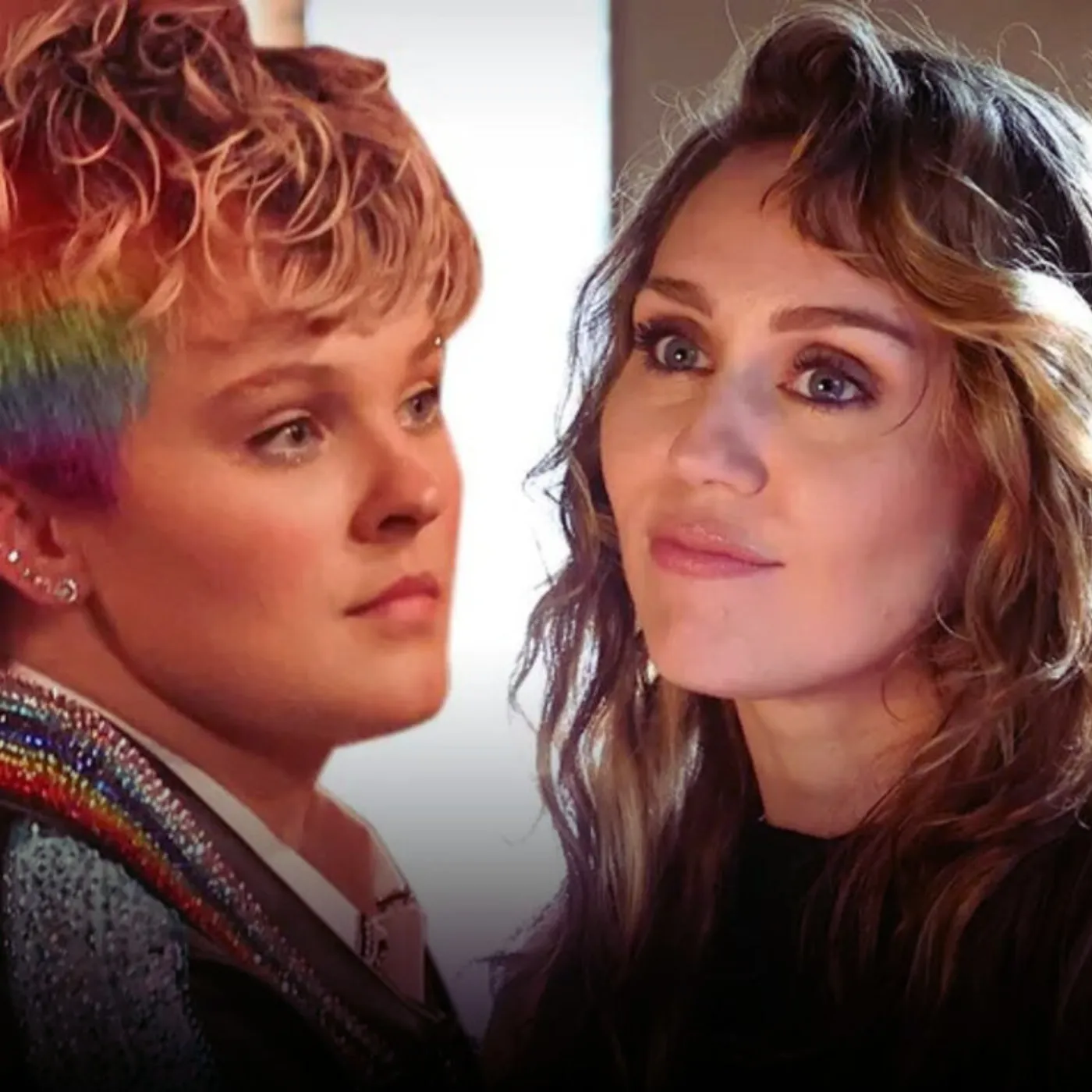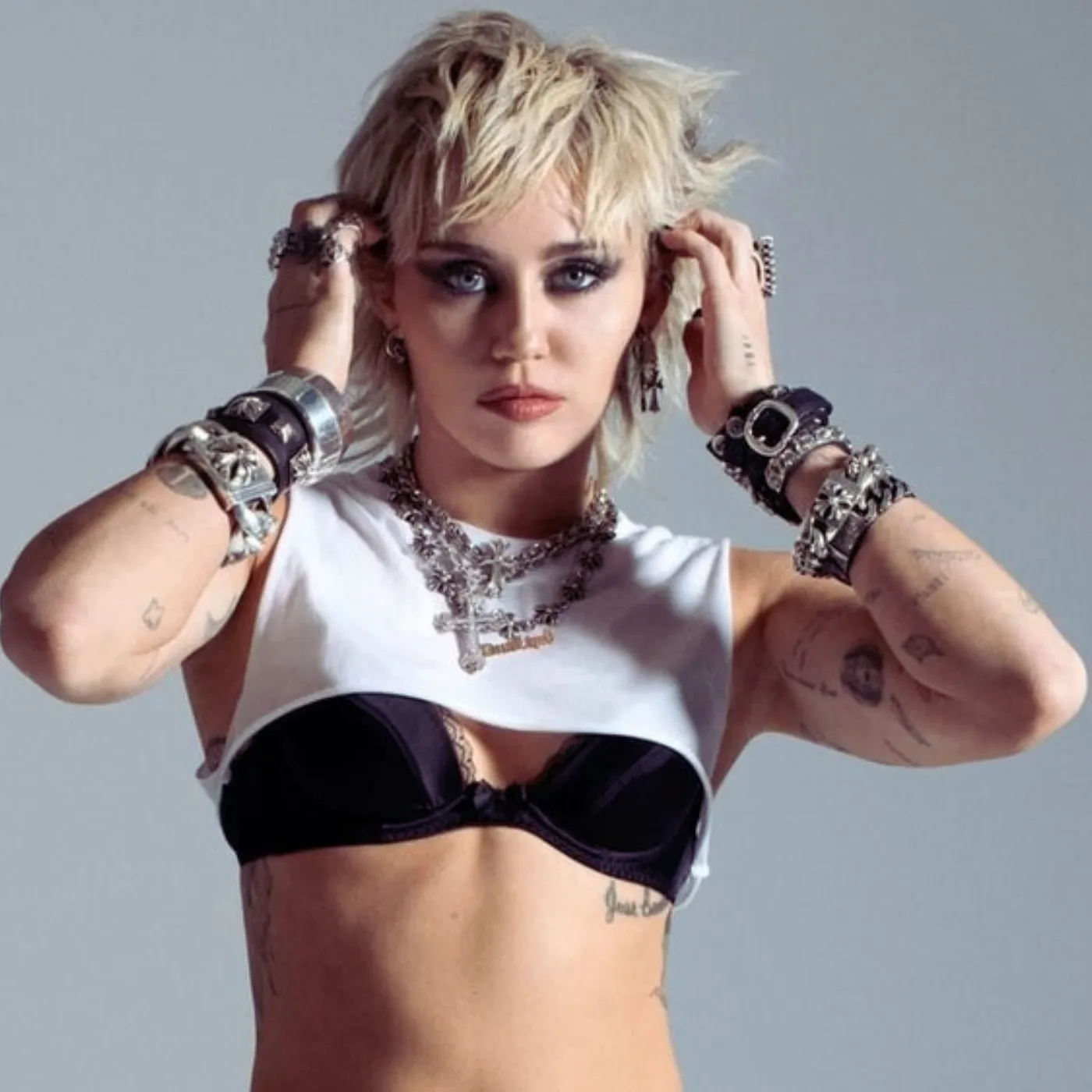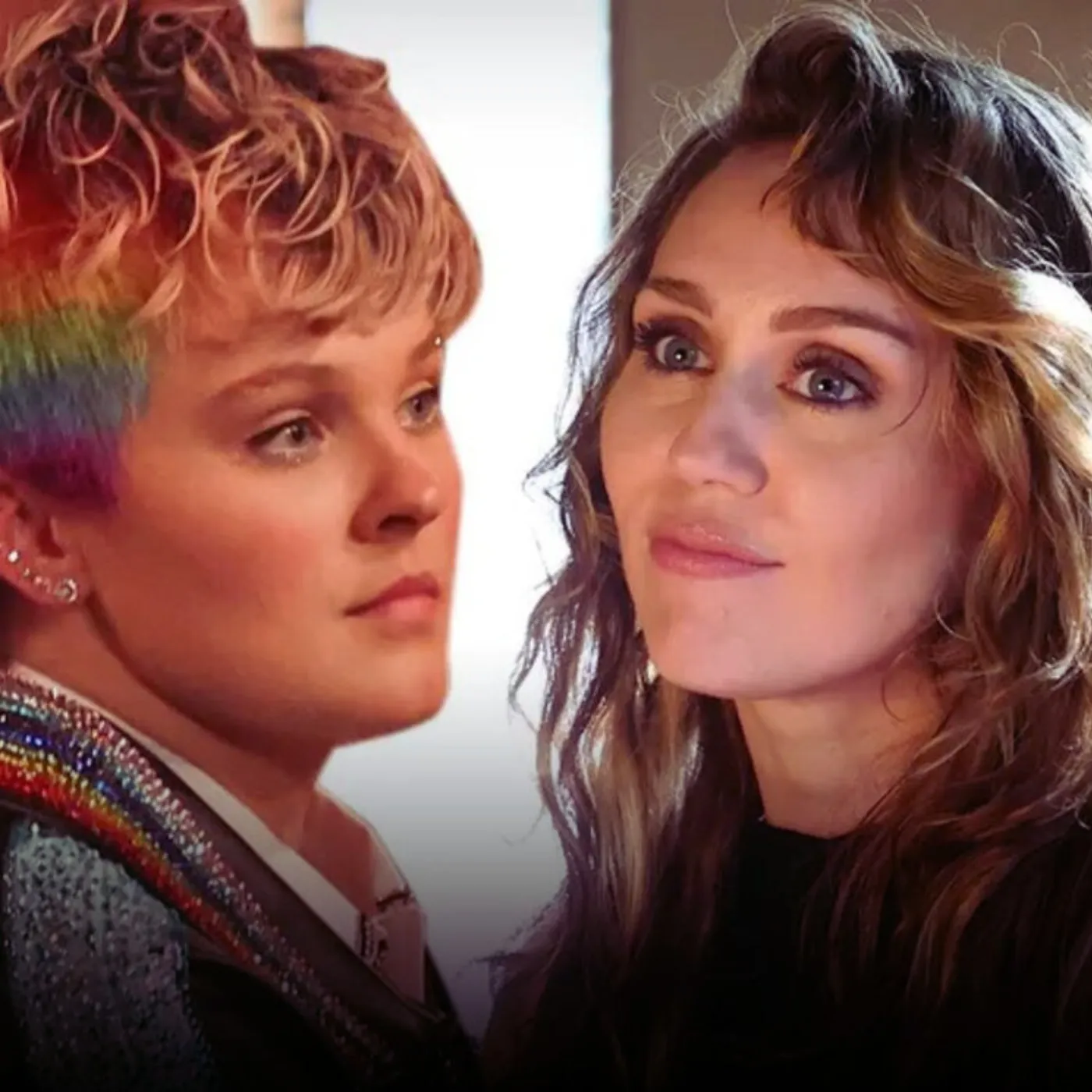

JoJo Siwa Slams Miley Cyrus Over “Closet” Joke: “This Isn’t What People Need Right Now”
In an industry where public personas are often carefully constructed, JoJo Siwa has built her career on a foundation of color, energy, and unapologetic boldness. But behind the glitter and bow-clad branding is a young woman who knows when to speak up—especially when she feels something isn’t right. This week, Siwa clapped back at Miley Cyrus for a joke that stirred widespread backlash and reignited online debates about celebrity responsibility and personal boundaries.

During a light-hearted moment in a recent appearance, Miley Cyrus made a comment about “bringing JoJo back out of the closet” in a tone that some found humorous but many considered dismissive. For Siwa, it crossed a line.
“That’s not what the world needs to hear right now,” JoJo Siwa stated in an interview that quickly went viral. The former child star didn’t hold back in calling the joke “not very good” and emphasized how even seemingly casual remarks can carry unintended weight.
A Joke That Sparked a Firestorm
What was likely meant as a lighthearted jab quickly ignited an online firestorm, with fans, critics, and media outlets weighing in. For some, it was just another offhand celebrity moment. For others, it was an example of how public figures can unintentionally trivialize deeply personal matters.
JoJo Siwa responded swiftly and publicly, stating, “People judge no matter what. That’s the reality. And the more careless we are with what we say, the worse it gets.”
Her reaction wasn’t just a personal defense—it was a broader statement about how stars influence the digital discourse. In an era where one sentence can become a meme, a movement, or a mob, Siwa made it clear she didn’t find the remark funny.
The Fallout and Fan Reactions
The comment and JoJo’s response dominated social platforms like X (formerly Twitter), Instagram, and TikTok. While some defended Miley, insisting the comment was taken out of context, a larger wave of support rallied behind Siwa for speaking up.
“She said what needed to be said,” one user posted. “We laugh at things until someone points out they aren’t funny. JoJo did that.“
Another user wrote, “I didn’t think about it that way until JoJo explained it.” Now I can’t un-hear how insensitive it was.”
The moment revealed more than just tension between two celebrities. It underscored a key point in today’s pop culture climate: words have lasting power, and even among entertainers, that power comes with responsibility.
The Price of Public Commentary
Miley Cyrus, known for her fearless personality and no-filter interviews, has often walked the line between shock and sincerity. In this case, the line may have blurred too far.
Cyrus has not publicly responded to Siwa’s comments as of this writing. However, insiders say her team is aware of the online backlash and monitoring the situation closely.
This isn’t the first time Miley has landed in hot water for what fans describe as tone-deaf remarks. But this time, the target wasn’t just any celebrity—it was JoJo Siwa, one of Gen Z’s most visible stars with a fanbase fiercely protective of her image and authenticity.

JoJo Siwa’s Evolving Image
Once known strictly as a bubbly YouTube sensation and reality TV figure, JoJo Siwa has evolved into a more complex, outspoken personality. She’s increasingly taken on serious topics, from body confidence to mental health and now, public discourse about accountability.
Her recent projects, including high-profile interviews and social media advocacy, show a maturing star who isn’t afraid to confront uncomfortable truths—even when they come from fellow entertainers.
By calling out Cyrus, Siwa positioned herself not as a victim but as a voice of clarity in a moment of cultural confusion.
Celebrity Culture and the Responsibility to “Read the Room”
This clash between JoJo Siwa and Miley Cyrus touches something much deeper than a one-off comment. It highlights a growing awareness among audiences that jokes—especially from celebrities—don’t exist in a vacuum. They reverberate. They influence. And sometimes, they hurt.
At the center of this is a powerful question: When does humor become harm? In an era when everything is filmed, clipped, shared, and dissected in seconds, the old excuse of “it was just a joke” no longer holds the same weight. Culture has evolved—and so have expectations.
Miley’s quip may have been spontaneous, but the aftermath reveals how quickly the tide can turn. Social media thrives on contradictions, and while it celebrates boldness, it also demands accountability. JoJo Siwa, by speaking out, didn’t just defend herself—she challenged the entertainment industry’s habit of brushing off real emotions as punchlines.
This moment matters because it captures a shift in the way young stars are navigating public life. They’re no longer passively absorbing criticism or laughing off disrespect. They’re confronting it head-on. And fans are watching. Closely.
What makes JoJo’s response resonate isn’t just the words—it’s the tone: measured, honest, unflinching. She didn’t launch a cancel campaign or resort to petty digs. She simply called attention to a line that shouldn’t be crossed, especially in a world where boundaries are already blurred by fame, trauma, and public expectation.
This isn’t about fragility. It’s about respect.
The real story here is that audiences are beginning to reward empathy over edge and sincerity over shock value. That’s a massive cultural reset—and JoJo Siwa is helping lead it.
What Happens Next?
Right now, the spotlight is on Miley Cyrus. Will she issue a statement? Offer clarity? Ignore it entirely? The world is watching—but the conversation has already evolved. And that’s the real takeaway.
Regardless of Miley’s next move, JoJo Siwa has already reframed the narrative. In one comment, she reminded her generation that celebrity doesn’t excuse insensitivity, and more importantly, that no one is too famous to be held accountable for their words.
What might’ve once been a blip on the gossip radar has now become a bigger conversation about responsibility and tone in public discourse.
Siwa’s stance sends a strong message to fans, critics, and industry peers alike: you don’t have to laugh just because everyone else is.

Final Thoughts
Whether you stan JoJo Siwa or Miley Cyrus—or neither—this moment isn’t just about two pop stars at odds. It’s about a much larger cultural reckoning.
We’re watching in real-time as the boundaries of celebrity humor shift, shaped by younger voices who aren’t afraid to say, “That wasn’t okay.” JoJo didn’t just clap back. She reclaimed the space to call out what she felt crossed a line.
It’s not about canceling. It’s about recalibrating. What do we find funny—and at whose expense? These are the questions shaping tomorrow’s headlines.
And in an entertainment industry that still profits off controversy, that kind of courage isn’t just refreshing—it’s revolutionary.


















